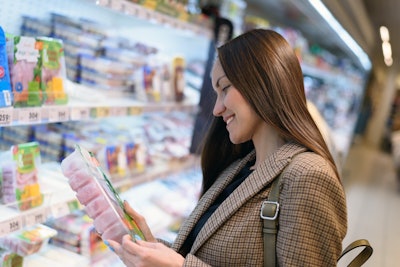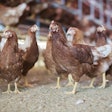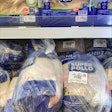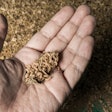
The packaging of poultry meat and eggs in the U.K., along with that of a host of other food products, might soon be sporting a new range of labels, designed, the country’s government says, to make labelling fairer and clearer.
Will the scheme really help consumers and, as importantly, help local food production, encouraging shoppers to look for higher welfare products and to buy British? Not everyone is yet to be convinced.
In the case of poultry meat and eggs, this new labelling could include not only country of origin information, but also a five-tier table covering animal welfare standards. Great if you care about such things, and are prepared to read and understand labelling, but how many consumers really do?
Informing the consumer
Whether more labelling will be beneficial or not, the U.K. government has, nonetheless, launched an eight-week consultation on labelling saying that it plans to give shoppers more information how and where their food is produced and to ensure that British farmers get the recognition that they deserve.
The consultation is looking at how to improve country of origin information for certain goods including how and where this information is displayed, and which products should be included.
The proposals would require method of production labelling on chicken, eggs and pork. Included in this would be a five-tier table for both domestically produced and imported products that differentiates between those that fall below, meet, and exceed baseline U.K. animal welfare regulations.
Additionally, the consultation is considering whether the origin or meat, seafood and dairy products should be included on menus in cafes and restaurants.
Not everyone is enthusiastic about the proposals, however, James Bailer, Executive Director of one of the U.K.’s largest supermarket chains Waitrose, has said that better information boosts demand for higher standards, as has been seen with mandatory egg labelling, and that extending this to more products would benefit shoppers, farmers, and animals.
A note of caution
The U.K.’s National Farmers’ Union (NFU), however, has said that it will look closely at the consultation and consult its members before responding.
Its Food Business Relationship advisor Helen Hunt had previously warned that policymakers should be wary of swallowing the “labelling pill” as the remedy to meeting public health, environment and societal challenges.
NFU Deputy President David Exwood, in response to the consultation’s announcement, warned that labelling alone was not enough to safeguard British standards from imports that are produced under conditions that would be illegal in the U.K.
Is labelling really the way forward?
Information at our fingertips when making purchasing decisions has to be beneficial, but price will be determining factor for many consumers when parting with their hard-earned cash. For those that do pay attention to on-pack information, will they understand it?
And while new labelling may pique consumer interest at first there is always the danger that, after a time, they become immune to it, or it becomes crowded out by other labels, such as eco- and health-labeling.
New labeling may help the U.K. make informed choices, but whether labeling alone will achieve much for U.K. farmers, which is one of the U.K. government’s stated aims, remains to be seen.


















